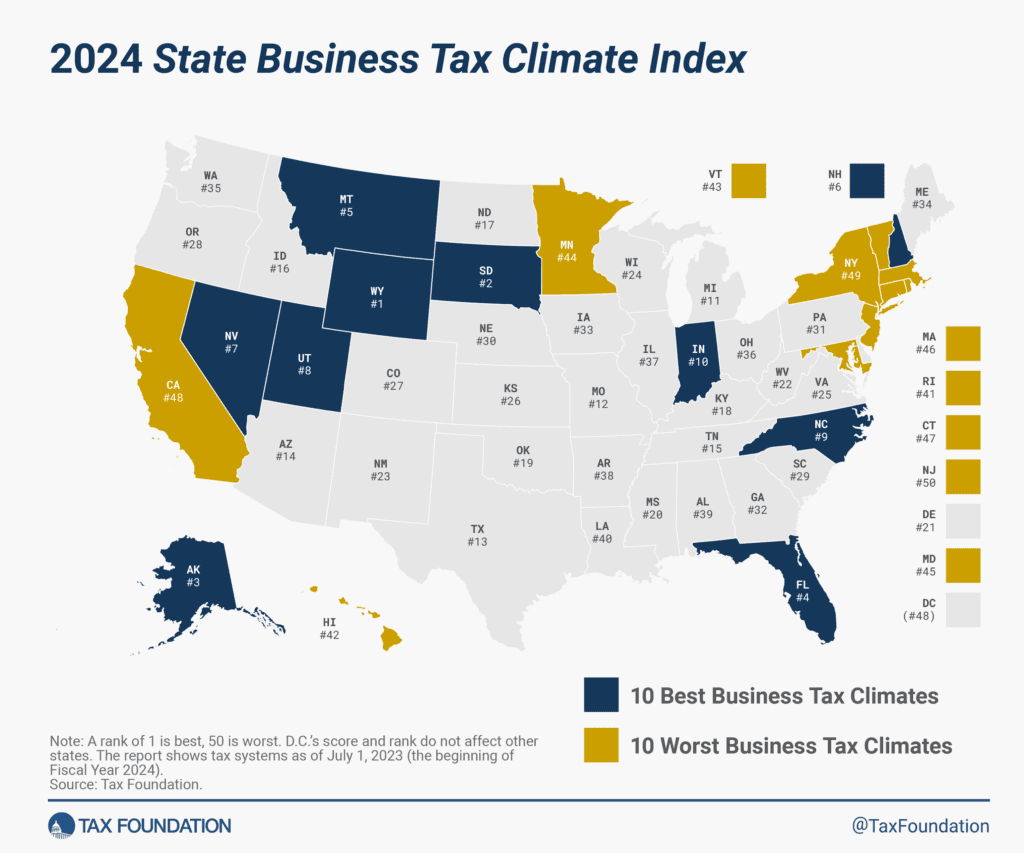
Coming as a surprise to no one who lives here, Minnesota now has the 4th-worst business tax climate and the 9th-worst individual income tax climate ranking among all 50 states.
“Minnesota ranks in the bottom half of states on each component of the Index,” the Tax Foundation reports. “The state’s corporate income tax score is, in part, weighed down by the new election to add Global Intangible Low-Taxed Income (GILTI) to the corporate tax base. Generally, states should avoid taxing GILTI, as state taxation should stop at the water’s edge, and taxing GILTI makes it more expensive for corporations to operate in a state for reasons having nothing to do with their activities in that state. Now, Minnesota ranks 47th on the corporate tax component, a loss of four positions compared to last year, and 44th overall.”
View the entire report here.
The Tax Foundation’s State Business Tax Climate Index enables business leaders, government policymakers, and taxpayers to gauge how their states’ tax systems compare. While there are many ways to show how much is collected in taxes by state governments, the Index is designed to show how well states structure their tax systems and provides a road map for improvement.
The 10 best states in this year’s Index are:
The absence of a major tax is a common factor among many of the top 10 states. Property taxes and unemployment insurance taxes are levied in every state, but there are several states that do without one or more of the major taxes: the corporate income tax, the individual income tax, or the sales tax. Nevada, South Dakota, and Wyoming have no corporate or individual income tax (though Nevada imposes gross receipts taxes); Alaska has no individual income or state-level sales tax; Florida has no individual income tax; and New Hampshire and Montana have no sales tax.
This does not mean, however, that a state cannot rank in the top 10 while still levying all the major taxes. Indiana and Utah, for example, levy all the major tax types but do so with low rates on broad bases.
The 10 lowest-ranked, or worst, states in this year’s Index are:
- Rhode Island
- Hawaii
- Vermont
- Minnesota
- Maryland
- Massachusetts
- Connecticut
- California
- New York
- New Jersey
The states in the bottom 10 tend to have a number of afflictions in common: complex, nonneutral taxes with comparatively high rates. New Jersey, for example, is hampered by some of the highest property tax burdens in the country, has the highest-rate corporate income taxes in the country, and has one of the highest-rate individual income taxes. Additionally, the state has a particularly aggressive treatment of international income, levies an inheritance tax, and maintains some of the nation’s worst-structured individual income taxes.




